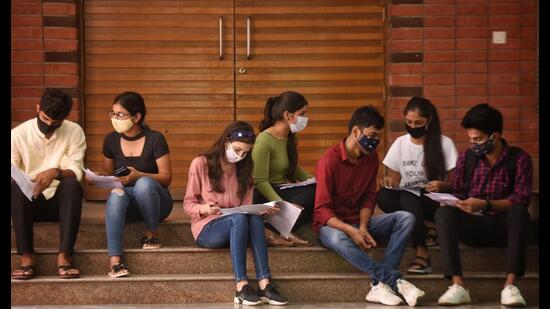India needs to relearn what it has to teach
Minds have to be kept open because there will always be something more to learn about these questions. That’s why Indians should be proud to be an argumentative country. That is why there should not be any full stops in India
For 25 years, I presented a BBC Radio 4 programme called Something Understood. Then just as the team was wondering how to make a special edition to celebrate the programme’s 25th anniversary, BBC told us that it wanted to allocate resources to another programme and our budget was going to that. But as our programme had built up an audience and a library of 25 years, we were told that Something Understood would continue by repeats from the library. So, although we, and I want to stress the “we” because the programme was a team event, were saddened that a programme we conceived, gave birth to, and kept alive for so long, was no longer active, there was the compensation that it was still on the air.

The programme is called Something Understood because it is about issues we can understand something about, but never understand everything about. Our inspiration was a poem called Prayer by the mystic English poet George Herbert. The poem is a list of metaphors for prayer. Herbert ends by saying: “The milky way, the bird of paradise, Church-bells beyond the stars heard, the soul’s blood, the land of spices, something understood.”
These metaphors describe what a prayer may be like or what a prayer could be believed to help us to do — to be “an engine against the mighty, sinners tower”. They tell us how prayers can make us feel — “softness and peace, and joy, and love, and bliss”. But they never tell us exactly what prayer is, what it does for us, what it makes us feel because it is something we can’t know exactly about. It is something we can only know something about.
This week, newspapers reported the University Grants Commission’s draft norms to allow foreign universities to set up campuses in India. Should we have Oxford and Cambridge campuses, and Harvard and Yale campuses, in India? Time and again, it has been asked whether this could recreate the days when India was the Vishwa Guru, the world leader. The great names of the past have been quoted as justification for claiming such an exalted academic status: Nalanda, Takshashila, Vallabhi and Vikramshila. Sometimes the not-so-outstanding record of today’s Indian universities is compared with the gallantry of time past, 2,000 to 2,500 years ago.
In what I read about the possibility of members of the top 500 global universities coming to India, I found no evidence that we might be able to recreate the achievements of the past. I found plenty to suggest that the present situation made that unlikely to happen. There is the question of demand. Only one top American university has partnered with a lowly graded country to establish a university.
In Britain, top universities are battling to win the academically brightest international students. They show no desire to reverse this trend and send their best students abroad. This is not to say there is no interest among international students in coming to India. Still, it is far from being a demand for foreign education at an affordable cost. So, achieving substantially cheaper costs will take a lot of work.
If India is to be serious in its desire to become the Vishwa Guru rather than competing, and probably failing to provide cut-rate western education, it will have to relearn what it has to teach. Here I come back to Something Understood. The fundamental principle of the programme is that the most important questions in life cannot be answered by yes or no. Minds have to be kept open because there will always be something more to learn about these questions. That’s why Indians should be proud to be an argumentative country. That is why there should not be any full stops in India.
The views expressed are personal
All Access.
One Subscription.
Get 360° coverage—from daily headlines
to 100 year archives.



HT App & Website






